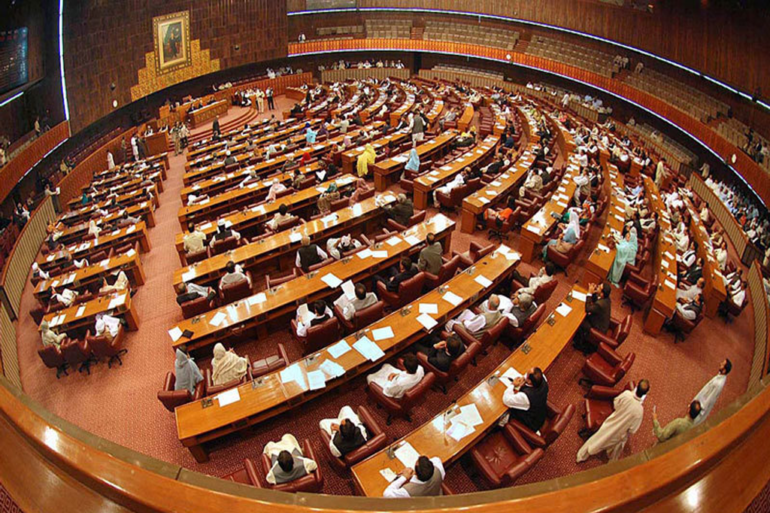The Senate on Friday approved the Elections (Amendment) Bill 2023, which aimed at granting the Election Commission of Pakistan (ECP) the authority to independently announce election dates without the need for consultation with the president.
The bill, introduced by State Minister Shahadat Awan, faced opposition from senators representing Jamaat-i-Islami and the opposition Pakistan Tehreek-e-Insaf (PTI).
The proposed legislation emphasizes the ECP’s responsibility to organize and conduct elections in a transparent and lawful manner, as mandated by the Constitution.
It highlights that “The ECP enjoys administrative and functional autonomy under the provisions of the Constitution and the Election Act, 2017, which facilitates the body in fulfilling its core obligation of free and fair elections.
“To further strengthen the commission, amendments in sections 57(1) and 58(1) of the Election Act 2017 are required to allow the ECP to announce poll dates for general elections on its own,” it added.
These amendments grant the ECP the power to unilaterally announce the dates for general elections through an official notification in the gazette, as stated in section 57(1). Additionally, section 58 allows the ECP to modify the election program or issue a fresh election program, including new poll dates, as deemed necessary.
The proposed amendments were thoroughly examined and endorsed by a parliamentary committee established by the Senate chairman. The committee recommended that the federal government initiate the legislative process.
During the Senate session, Law Minister Azam Nazir Tarar underscored that the right to determine election dates was initially granted to the ECP in 1973.
However, he mentioned that General Ziaul Haq later transferred this authority to the president through an amendment.
Tarar asserted that the amendments to the Elections Act would enhance the ECP’s role and enable flexibility in adjusting election schedules.
He emphasized that the amendments aimed to eliminate ambiguities and that parliamentary legislation was permissible when the Constitution remained silent on certain matters.
On the other hand, Leader of the Opposition Shahzad Waseem objected to the proposed law, stating that legislation could only be enacted within the constitutional framework. He argued that the Constitution explicitly conferred the power to announce election dates to both the president and the governor. Waseem suggested that instead of complicating matters, a straightforward legislation approach should be adopted.
Subsequently, the bill was presented for voting in the Senate, and it passed with a majority, as confirmed by Senate Chairman Sadiq Sanjarani.
In addition to the amendments empowering the ECP, the bill also includes a revision to Section 232 (Qualifications and Disqualifications) of the Election Act of 2017.
According to the amendment, the disqualification of an individual under Article 62(f) of the Constitution as a member of the Parliament or provincial assembly shall not exceed five years from the court’s declaration.
The amendment specifies that the disqualification procedure, criteria, and duration should align with the relevant provisions of Articles 63 and 64 of the Constitution, with the Election Act being applicable in the absence of specific guidelines.



